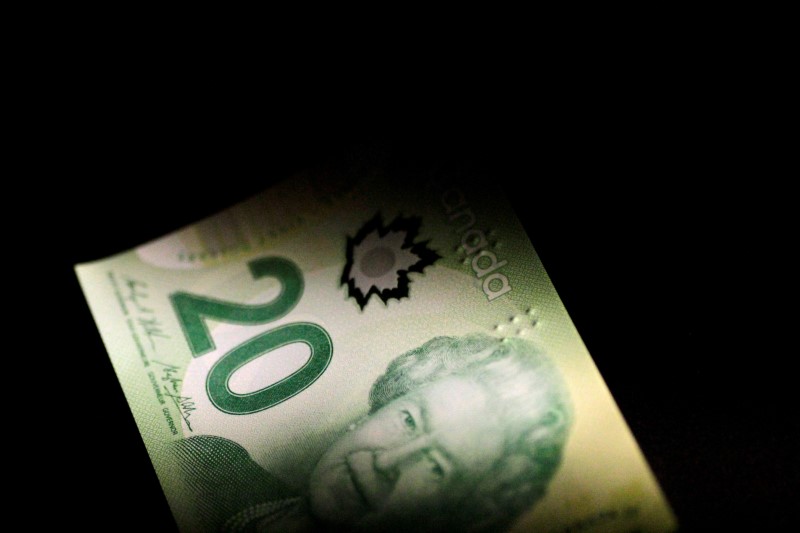By Fergal Smith
TORONTO (Reuters) - The Canadian dollar is forecast to strengthen over the coming year, a Reuters poll showed on Thursday, as expected Bank of Canada interest rate hikes and broad pressure on the U.S. dollar offset uncertainty over the future of the NAFTA trade deal.
The poll of more than 40 foreign exchange strategists predicted that the loonie will edge up to C$1.250 to the greenback, or 80 U.S. cents, in one month, from around C$1.255 on Wednesday. After a period of stabilization, it is then expected to climb to C$1.230 in a year.
"Higher interest rates in Canada and good economic data should help the loonie," said Hendrix Vachon, senior economist at Desjardins. "A reduction of recent volatility in the stock market should also help."
The loonie
Commodity-linked currencies tend to underperform when stocks fall, because of the signal that it sends on prospects for global economic growth. Oil is one of Canada's major exports.
The Bank of Canada raised its benchmark interest rate to 1.25 percent in January, its third hike since July, judging that the economy is operating at close to capacity.
Money markets expect two further hikes this year but economic data will likely need to stay robust to support additional policy tightening.
"The currency will be vulnerable to any disappointment on the data front in the months ahead," said George Davis, chief technical strategist at RBC Capital Markets. "Add to that the risks that linger around the next two rounds of NAFTA negotiations."
He projects the loonie will fall to C$1.27 in one month but then rebound to C$1.23 in a year.
The United States, Canada and Mexico plan to meet in Mexico City on Feb. 26 to start the seventh round of talks to renegotiate the North America Free Trade Agreement. Talks are supposed to culminate in Washington in March with the final round.
U.S. President Donald Trump has threatened to withdraw from NAFTA if he cannot rework it in favor of the United States. The outcome is important to Canada as it sends about 75 percent of its exports south of the border.
Other potential challenges for Canada's economy could include the uncertain impact of tighter mortgage rules, which took effect at the start of January on a once red-hot housing market, and past rate hikes on highly indebted consumers.
Still, the expectation the U.S. dollar (DXY) will extend its 2017 losses is a major reason why some strategists are bullish on the loonie.
They say potential tightening of monetary policy by the European Central Bank and the Bank of Japan and U.S. structural headwinds - such as fiscal and current account deficits - could weigh on the greenback.
"A weak U.S. dollar environment is positive for commodities priced in U.S. dollars," said Eric Theoret, a currency strategist at Scotiabank. "It will be a terms of trade benefit for Canada where the price of our exports rise relative to the price of our imports."
(Other stories from the February Reuters global foreign exchange poll:)

(Polling by Sarmista Sen and Khushboo Mittal; Editing by Bernadette Baum)